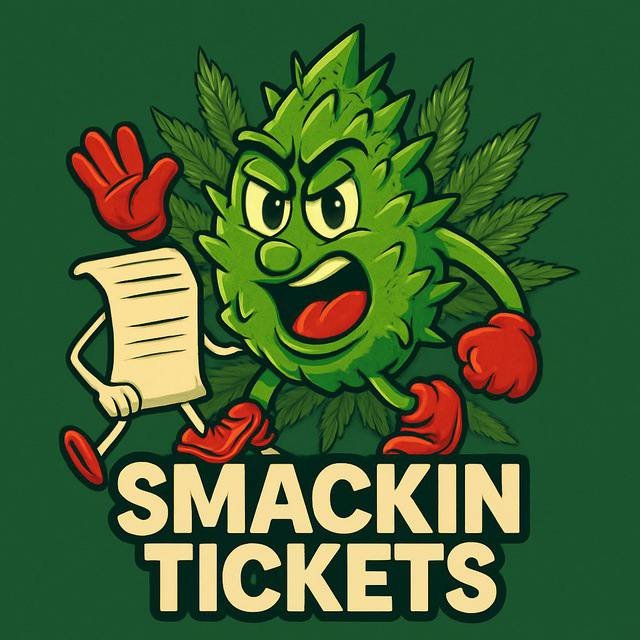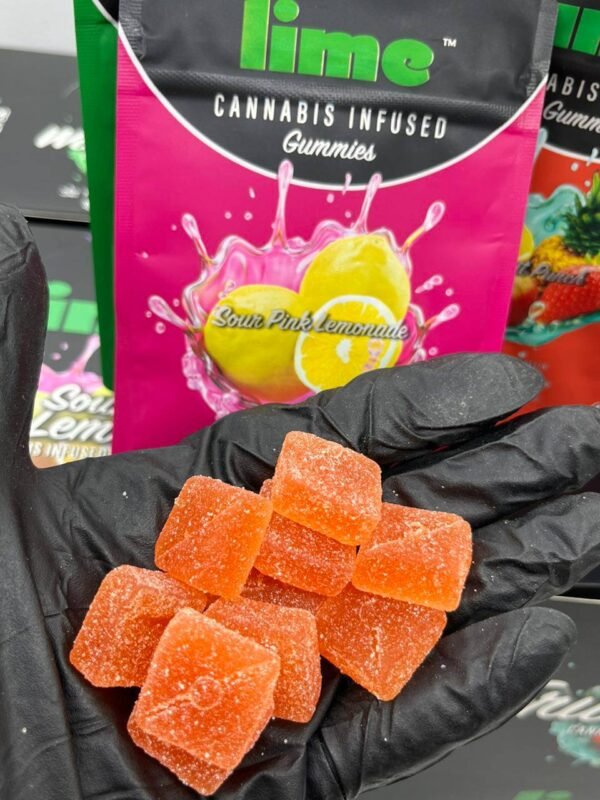SMACKIN TICKETS EDUCATIVE BLOG
Cannabis Edibles: Long-Lasting & Discreet Relief Without Smoke
Introduction
Cannabis edibles provide a convenient, discreet, and smoke-free way to experience the benefits of cannabis. By infusing cannabinoids like THC and CBD into food or drink, edibles allow users to avoid inhalation altogether while still accessing strong and lasting effects. From THC gummies and chocolates to infused beverages and baked goods, edibles come in a wide array of formats, flavors, and potencies. Their ease of use and longer-lasting effects make them especially appealing for medical users and those looking for steady, all-day symptom control. Whether you’re new to cannabis or seeking a low-profile method of relief, edibles deliver a reliable and flavorful option.
Section 1 – What Are Cannabis Edibles & Common Forms
Cannabis edibles are food or drink products infused with cannabinoids, typically THC or CBD, extracted from the cannabis plant. These cannabinoids are first decarboxylated—a heating process that activates them—and then infused into fats or oils, which serve as the base for edible formulations. Once incorporated, the infused oil can be added to a variety of consumable goods.
Popular Edible Formats Include:
-
THC Gummies: One of the most common and user-friendly forms. These chewy candies typically offer consistent dosing, such as 5–10mg of THC per piece, making them ideal for beginners or those practicing microdosing.
-
Chocolates & Baked Goods: From brownies to cookies and truffles, these offer familiar formats with a cannabis twist.
-
Infused Beverages: Sparkling drinks, teas, and coffees containing cannabinoids allow for hydration and effect in one go.
-
Capsules & Pills: Tasteless, odorless options often preferred by medical users seeking precision and ease.
-
Tinctures: While technically sublingual and not a traditional edible, tinctures can be added to food and drinks for similar results.
Each edible type is formulated to offer controlled dosing, which is essential for achieving predictable outcomes and avoiding overconsumption.
Section 2 – Benefits & Therapeutic Applications
Cannabis edibles provide a range of benefits that appeal to both recreational and medical consumers. Their extended effect duration and discretion make them ideal for numerous situations and health conditions.
Long-Lasting Cannabis Relief
Unlike inhaled cannabis, which wears off within a few hours, edibles offer a much longer-lasting experience, with effects often persisting for 4–6 hours or more. Some users report therapeutic relief lasting up to 8–10 hours, particularly from high-potency products. This extended window makes edibles an excellent option for managing chronic conditions that require sustained relief.
Common Medical Applications
-
Pain Relief: Ideal for long-term pain management, such as arthritis, fibromyalgia, or post-surgical recovery.
-
Insomnia: Slow onset paired with long duration makes edibles effective sleep aids.
-
Digestive Disorders: Since edibles are processed through the digestive system, they can be particularly helpful for issues like IBS, nausea, or appetite loss.
-
Anxiety & Stress: Low-dose THC edibles or CBD-rich products can ease mental stress without the headrush sometimes caused by smoking.
No Smoke, No Irritation
Edibles eliminate the risks associated with inhalation. Users with respiratory conditions, such as asthma or chronic bronchitis, often find edibles to be a safer alternative. There’s no combustion, no odor, and no coughing—just clean, smoke-free relief.
Discreet Usage
Because they resemble everyday foods and drinks, cannabis edibles are perfect for discreet consumption. They’re odorless, easy to store, and inconspicuous—ideal for those who value privacy or live in shared spaces.
Section 3 – Consumption Tips & Edible Onset
While edibles offer many benefits, they come with a learning curve—mainly due to their delayed onset and stronger effects compared to inhaled cannabis.
Understanding the Edible Onset
Unlike smoking or vaping, which deliver cannabinoids almost instantly via the lungs, edibles must first be digested. The edible onset typically ranges from 30 to 90 minutes, depending on factors like:
-
Metabolism
-
Stomach contents (full or empty)
-
Body weight
-
Tolerance
Because of this delay, it’s critical to wait before re-dosing. Many overconsume out of impatience, leading to an overwhelming experience hours later.
Start Low, Go Slow
Beginners are strongly advised to start with a low dose—typically 2.5 to 5mg of THC—and wait at least 2 hours before considering more. This gradual approach is known as microdosing, a method favored for its gentle effects and fine control over one’s experience.
11-Hydroxy-THC: The Potency Factor
When THC is ingested, it is metabolized by the liver into a compound called 11-hydroxy-THC, which is significantly more potent and longer-lasting than inhaled THC. This metabolic transformation is what makes edible effects feel stronger and more introspective. While this can be a benefit for seasoned users, it can also catch beginners off guard.
Section 4 – Potential Risks & Considerations
While cannabis edibles are safe when used properly, they do carry some risks, primarily related to dosing and delayed effects.
Risk of Overconsumption
The most common pitfall is taking too much, too soon. Because the effects take time to set in, impatient users may consume additional doses, only to be overwhelmed when the full effects hit later. Overconsumption can result in:
-
Anxiety or panic
-
Paranoia
-
Nausea
-
Disorientation
-
Excessive sedation
Though not fatal, these symptoms can be distressing and are best avoided through careful dosing and patience.
Duration May Be Too Long
While the long-lasting nature of edibles is a benefit, it can also be a drawback—especially for new or sensitive users. Once consumed, edibles can’t be “turned off.” If the experience becomes uncomfortable, users must wait several hours for it to subside. Starting with small doses is the key to a manageable experience.
Labeling and Quality
Not all edibles are created equal. The effectiveness of a product depends on:
-
Accurate lab testing
-
Clear labeling of THC/CBD content
-
Consistent formulation
Look for reputable brands that use third-party lab testing to ensure potency, safety, and absence of contaminants. Mislabeling or under-testing can lead to unexpectedly strong or weak products.
Conclusion
Cannabis edibles offer a discreet, smoke-free path to powerful, long-lasting cannabis effects. Perfect for both medical and recreational users, edibles provide targeted relief with added convenience and comfort. However, the delayed edible onset and potent transformation into 11-hydroxy-THC require patience and mindful dosing. For those seeking prolonged, low-profile relief, edibles—especially reliable options like THC gummies—are a smart and therapeutic choice. With careful use and attention to quality, they remain one of the most effective cannabis formats available.

